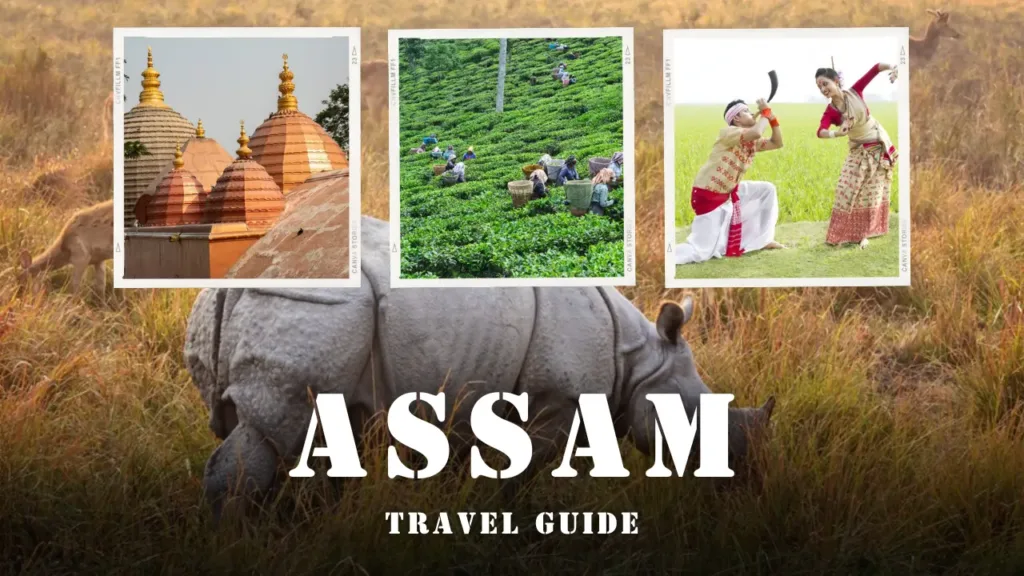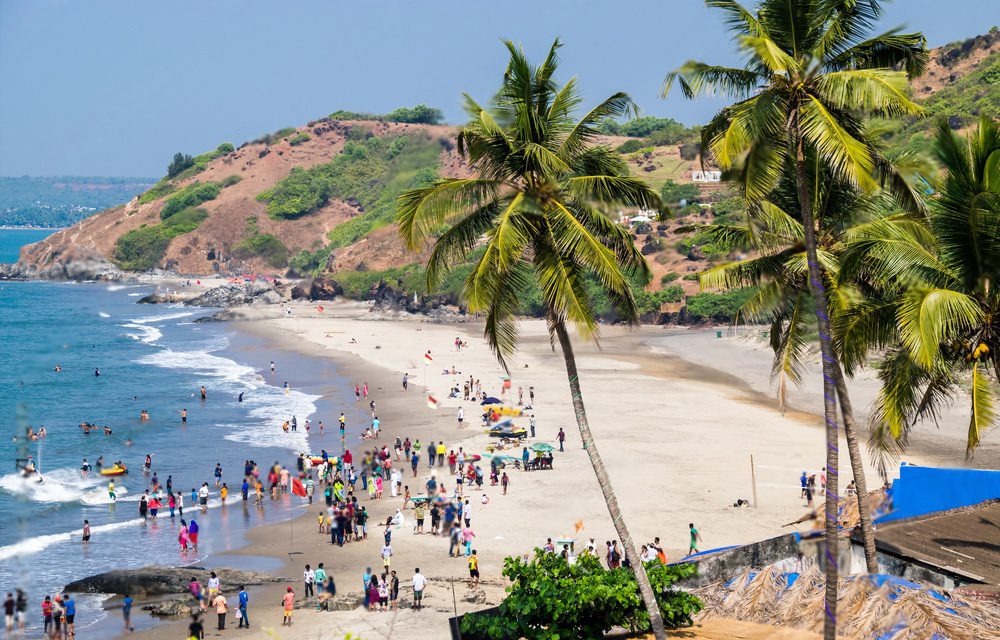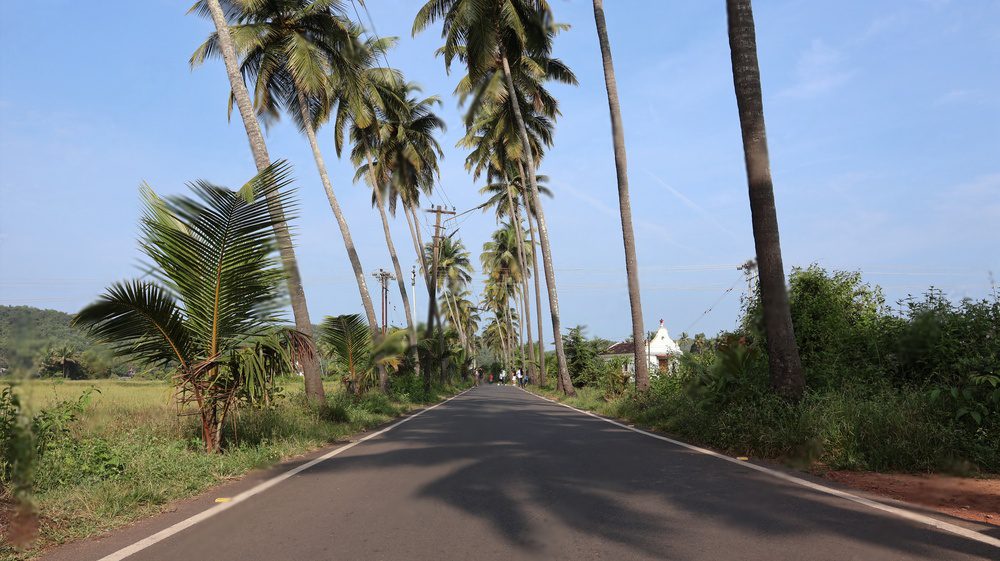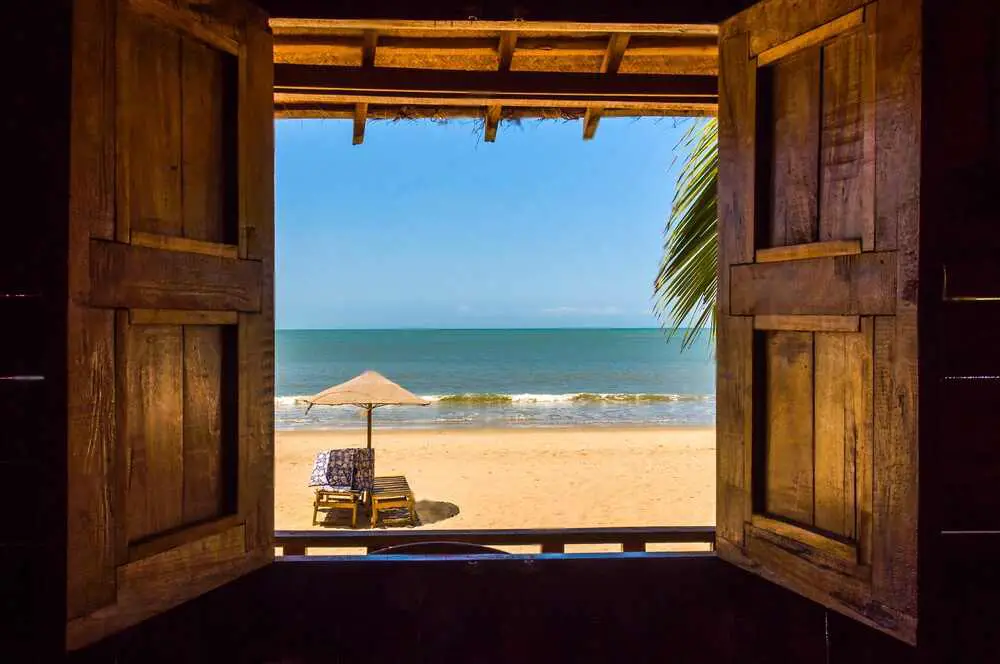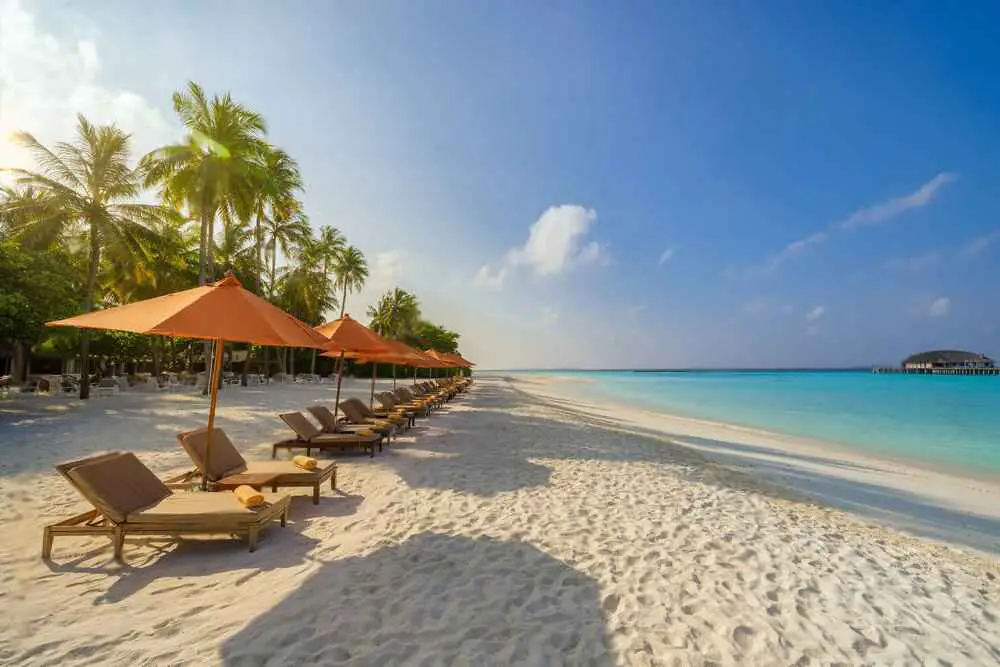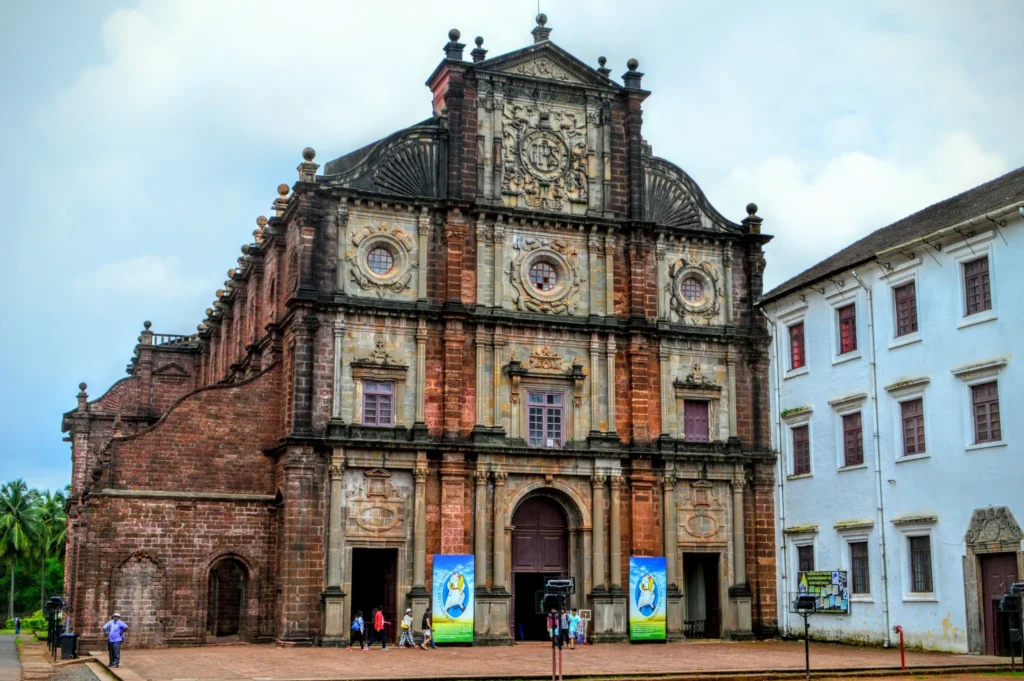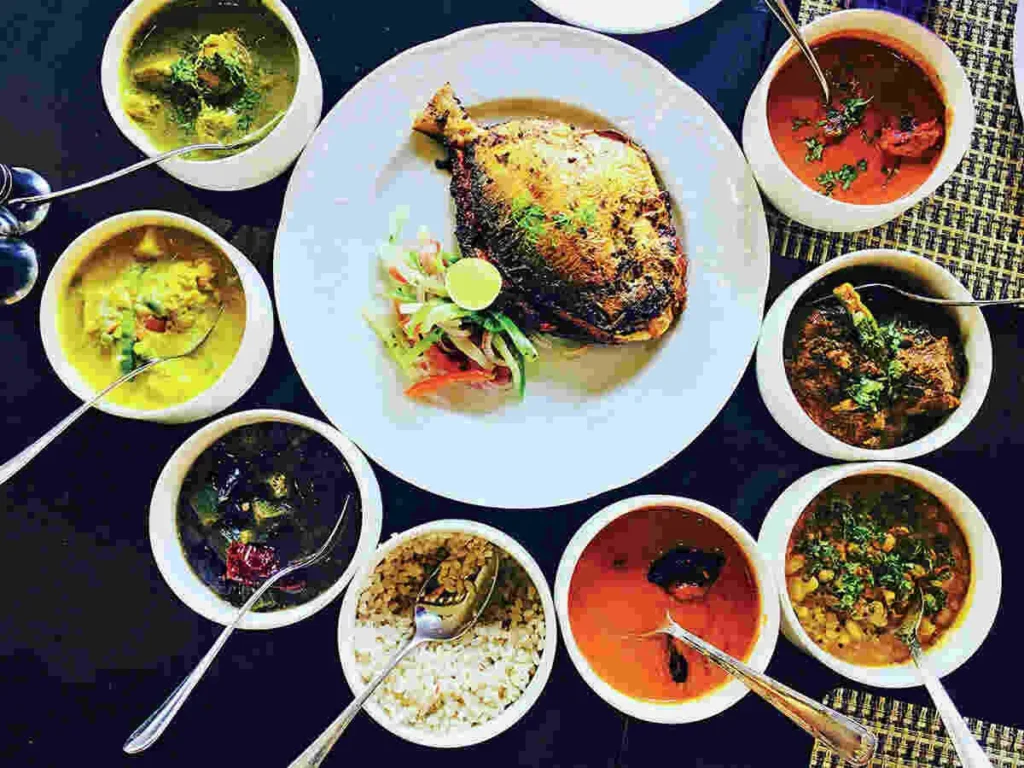Assam Imagine a place, where the air is dense with the scent of tea gardens, and the gentle murmurs of the Brahmaputra River carry echoes of ancient stories. Assam, a prized gem in Northeast India, warmly embraces visitors, providing an all-encompassing experience for every kind of adventurer. Whether you are a lone wanderer, a family in search of serenity, or an individual seeking a unique adventure, Assam holds something extraordinary for each soul.
How to Reach Assam:
By Air:
- The fastest and most convenient way to reach Assam is by flying into Lokapriya Gopinath Bordoloi International Airport (LGBI) in Guwahati, the state’s capital city. LGBI is well-connected to major cities in India, including Delhi, Mumbai, Kolkata, Bangalore, and Chennai.
- From the airport, you can take a prepaid taxi or rickshaw to your destination in Guwahati or other parts of Assam.
By Train:
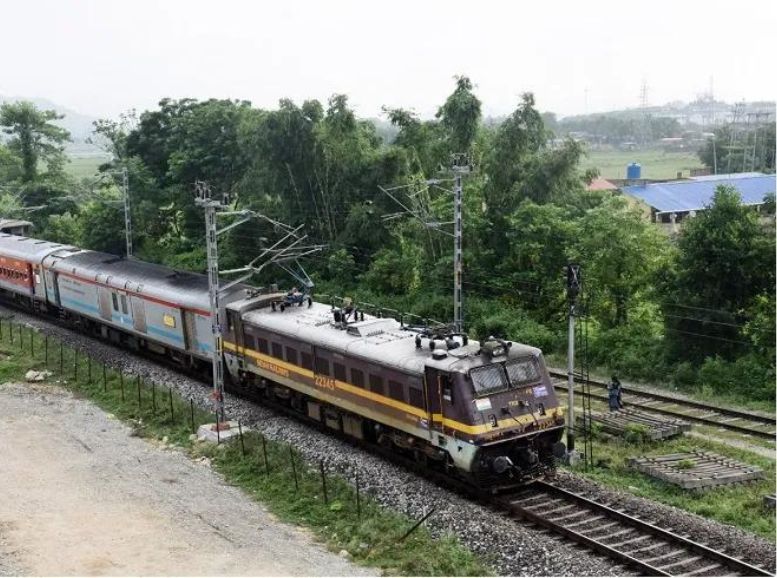

- Assam has a well-developed railway network, with Guwahati being the major railhead. Direct trains connect Guwahati to major cities like Delhi, Kolkata, Mumbai, Chennai, Bangalore, and others.
- Several express and mail trains also ply to and from various towns and cities within Assam.
By Road:
- Assam boasts a well-maintained road network with national highways and state highways connecting it to neighboring states and other parts of India.
- You can take a bus from major cities in India to Guwahati or other towns in Assam. Buses operated by state transport corporations and private companies offer regular services.
- Alternatively, you can drive to Assam on your own vehicle or hire a taxi or car for a road trip.
Best Time to Visit Assam:
The best time to visit Assam depends on what you want to do and see. Here’s a breakdown of the different seasons:
- Winter (October to March): This is the most popular time to visit, as the weather is pleasant and sunny, with temperatures ranging from 6°C to 25°C. This is a great time for sightseeing, wildlife watching, and outdoor activities.
- Summer (April to June): The summer months can be quite hot and humid, with temperatures reaching up to 38°C. However, there is less rainfall than in the monsoon season. This is a good time to visit if you want to avoid the crowds and don’t mind the heat.
- Monsoon (July to September): Assam receives heavy rainfall during the monsoon season, which can make it difficult to travel and some activities may be unavailable. However, the lush green landscape is at its most beautiful during this time.
Here are some additional factors to consider when planning your trip to Assam:
- Festivals: If you want to experience Assamese culture, you may want to plan your trip around one of the many festivals that take place throughout the year. Some of the most popular festivals include Bihu (the harvest festival), Kamakhya Puja (a festival dedicated to the goddess Kamakhya), and the Ambubachi Mela (a tantric festival).
- Wildlife: Assam is home to a variety of wildlife, including one-horned rhinos, elephants, tigers, and birds. The best time to see wildlife is during the dry season (October to April), when the animals are more likely to be out and about.
Overall, the best time to visit Assam is during the winter months (October to March). However, the shoulder seasons (April to June and July to September) can also be good times to visit, depending on your preferences.
Must Visit Places:
Kaziranga National Park:
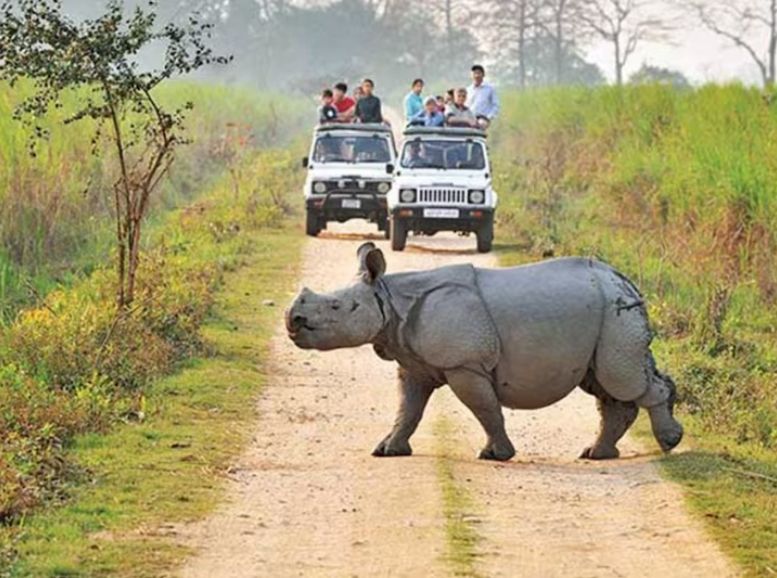

Kaziranga National Park, nestled in the Indian state of Assam, is a sanctuary of unparalleled biodiversity and natural splendor. Renowned worldwide for its population of the endangered one-horned rhinoceros, Kaziranga is a UNESCO World Heritage Site and a testament to conservation efforts. Spanning over 430 square kilometers of lush forests, wetlands, and grasslands, the park serves as a haven for numerous other species, including tigers, elephants, wild water buffalo, and a myriad of bird species.
Majuli Island:
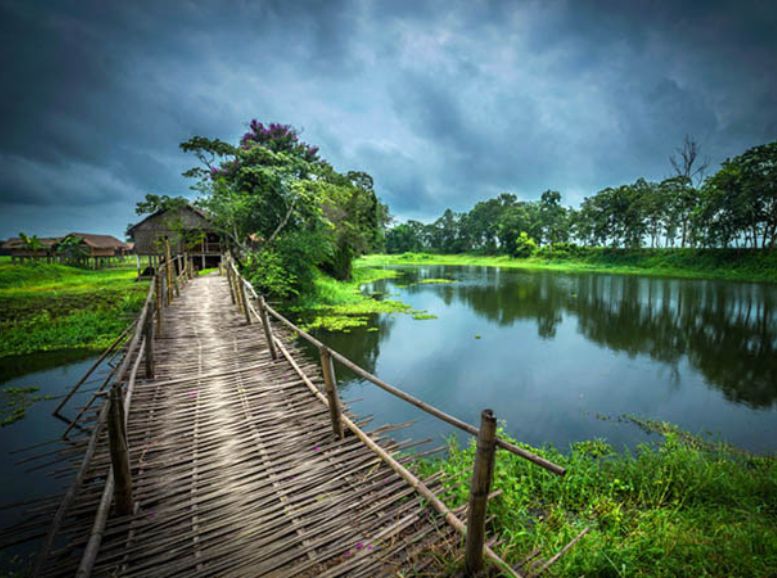

Majuli Island, located in the northeastern state , India, is the largest river island in the world. Situated amidst the mighty Brahmaputra River, Majuli is renowned for its rich cultural heritage, serene landscapes, and vibrant traditions. Home to numerous Assamese tribes and ethnic groups, the island is a melting pot of diverse cultures, languages, and customs. Majuli is famous for its Vaishnavite monasteries, known as Satras, which are centers of Assamese art, music, and dance. These Satras also play a significant role in preserving and propagating the ancient Sankari culture of the region.
Kamakhya Temple:
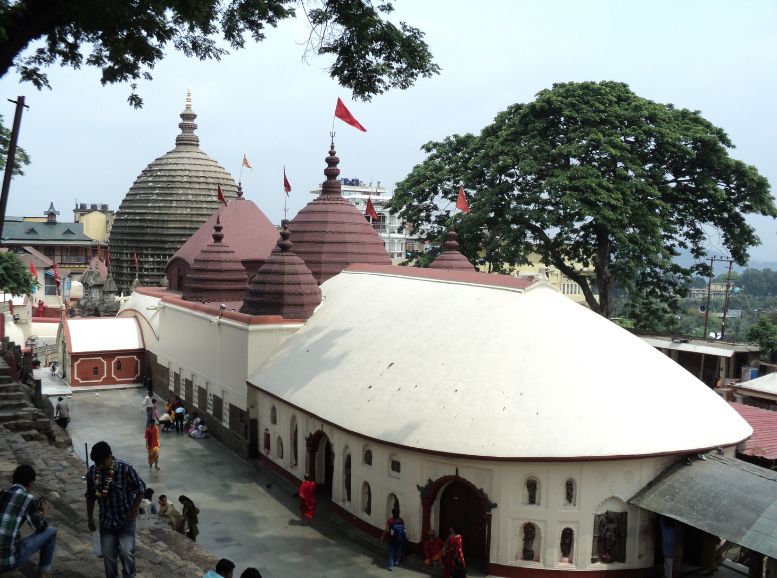

Perched atop the Nilachal Hill in the city of Guwahati, Kamakhya Temple stands as one of the most revered and ancient Hindu pilgrimage sites in India. Dedicated to the goddess Kamakhya, an incarnation of Devi or the Mother Goddess, this temple is shrouded in mystique and spirituality. The temple complex is a confluence of various architectural styles, with its distinctive red dome-like structure and intricate carvings drawing visitors from across the globe. Kamakhya Temple holds immense religious significance, particularly for devotees of Shaktism, who believe in the worship of the divine feminine energy.
Manas National Park:
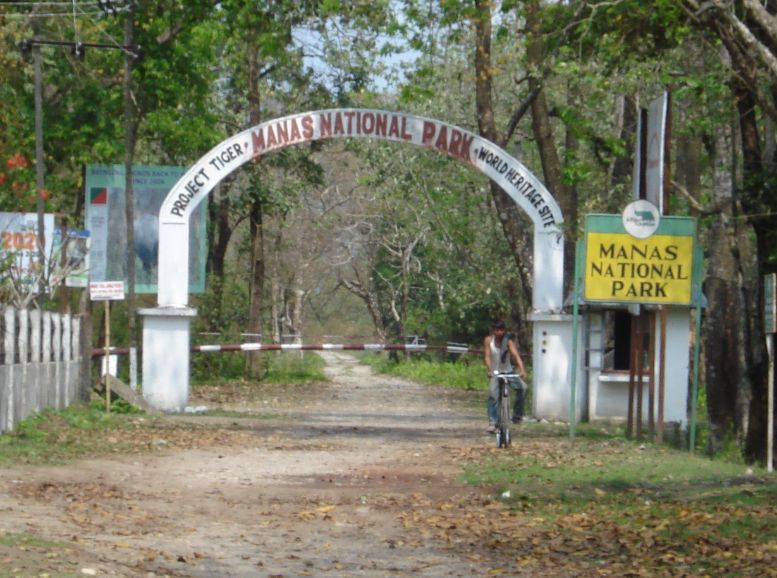

Nestled in the foothills of the Eastern Himalayas in the state, India, Manas National Park is a haven of unparalleled biodiversity and natural beauty. Recognized as a UNESCO World Heritage Site, this pristine wilderness sanctuary is home to a remarkable array of flora and fauna, including the majestic Bengal tiger, Indian rhinoceros, Asian elephant, and the elusive golden langur. Spanning across dense forests, grasslands, and riverine habitats, Manas National Park is crisscrossed by the mighty Manas River, adding to its scenic charm.
Tea Estates of Assam:
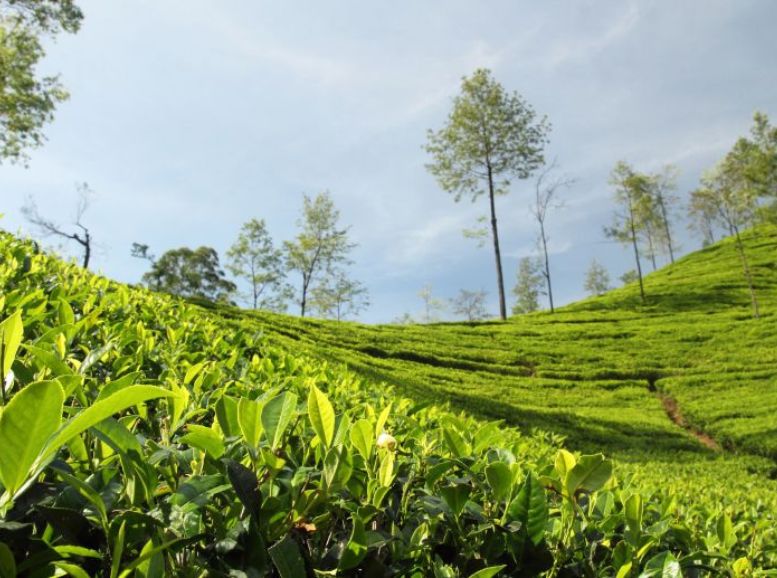

The tea estates of Assam stand as an emblem of the region’s rich cultural heritage and economic significance. Nestled amidst the rolling hills and verdant valleys of the Brahmaputra Valley, these estates are renowned worldwide for producing some of the finest tea varieties. With a history dating back to the British colonial era, Assam’s tea estates have evolved into sprawling plantations, meticulously cultivating the Camellia sinensis plants that yield the renowned Assam tea. The landscape is adorned with neatly manicured rows of tea bushes, where skilled workers carefully pluck the tender leaves by hand.
Hajo:
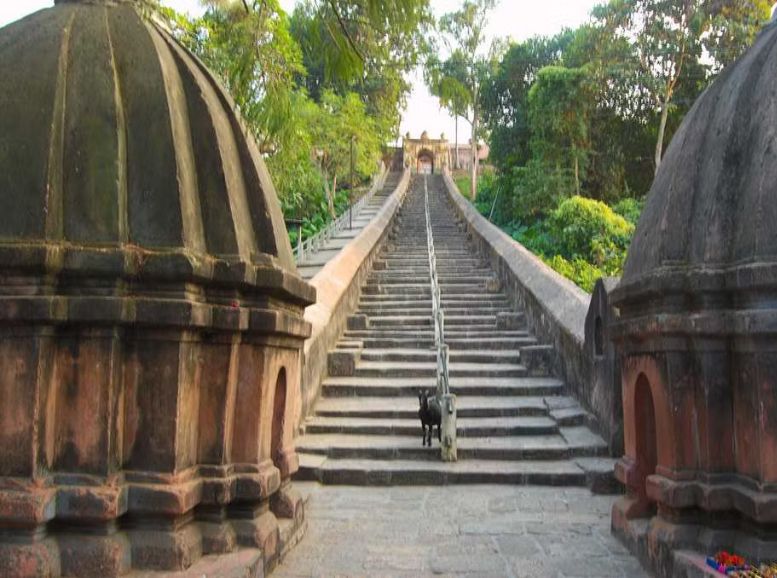

Hajo, a historic town nestled on the banks of the Brahmaputra River in the Indian state of Assam, is a sacred pilgrimage site revered by people of various faiths. Known for its religious diversity and cultural significance, Hajo is home to several ancient temples, mosques, and shrines that coexist harmoniously, reflecting the spirit of communal harmony and tolerance. Among its notable landmarks is the Hayagriva Madhava Temple, an important Hindu pilgrimage site dedicated to Lord Vishnu.
Pobitora Wildlife Sanctuary:
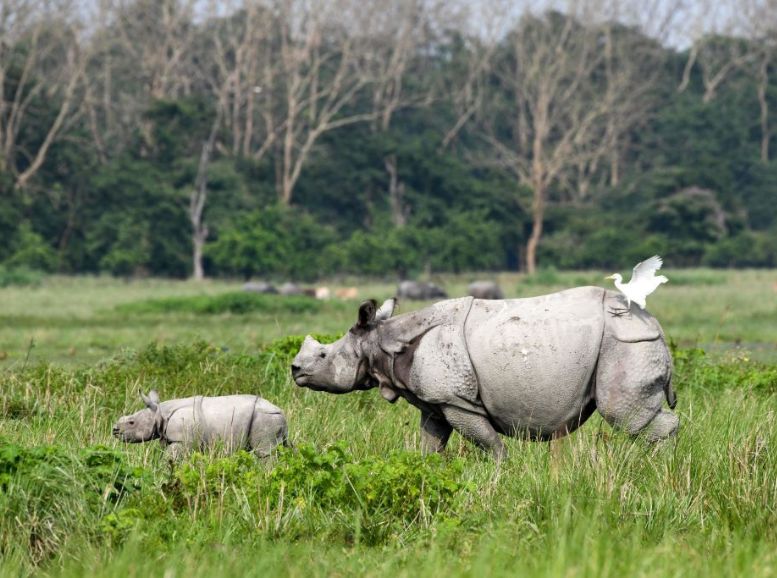

Pobitora Wildlife Sanctuary, situated in the Morigaon district, India, is a hidden gem renowned for its dense population of the great Indian one-horned rhinoceros. Spanning over an area of approximately 38 square kilometers, Pobitora is often referred to as “Mini Kaziranga” due to its similarities with the larger Kaziranga National Park in terms of biodiversity and conservation efforts. Apart from the iconic rhinoceros, the sanctuary is also home to a variety of other wildlife species, including wild buffalo, elephants, leopards, and numerous bird species, making it a paradise for wildlife enthusiasts and birdwatchers.
Kamalabari Satra:
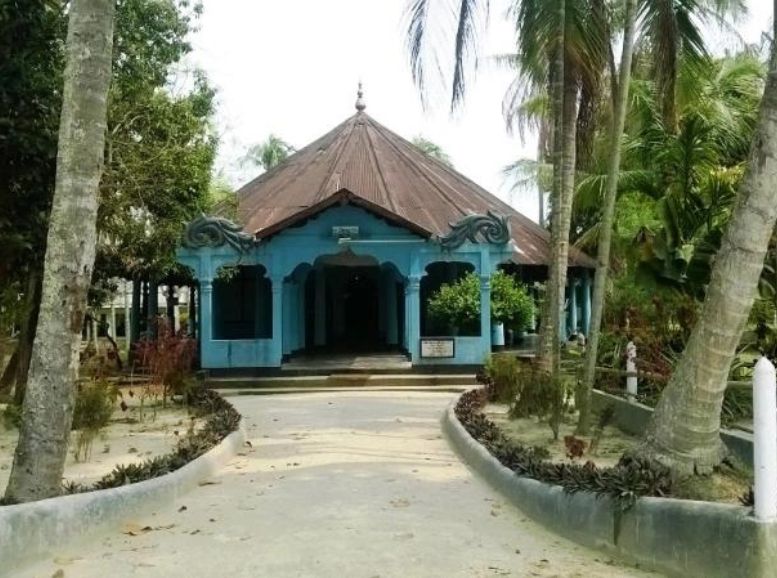

Kamalabari Satra, located on Majuli Island in the Brahmaputra River, India, is one of the most prominent Vaishnavite monasteries in the region. Established in the 16th century by Srimanta Sankardeva, the revered saint, social reformer, and cultural icon of Assam, Kamalabari Satra holds immense religious and cultural significance. The Satra serves as a center for the propagation of the Ekasarana Dharma, a monotheistic Vaishnavite faith preached by Srimanta Sankardeva, emphasizing devotion to Lord Krishna.
Sivadol:
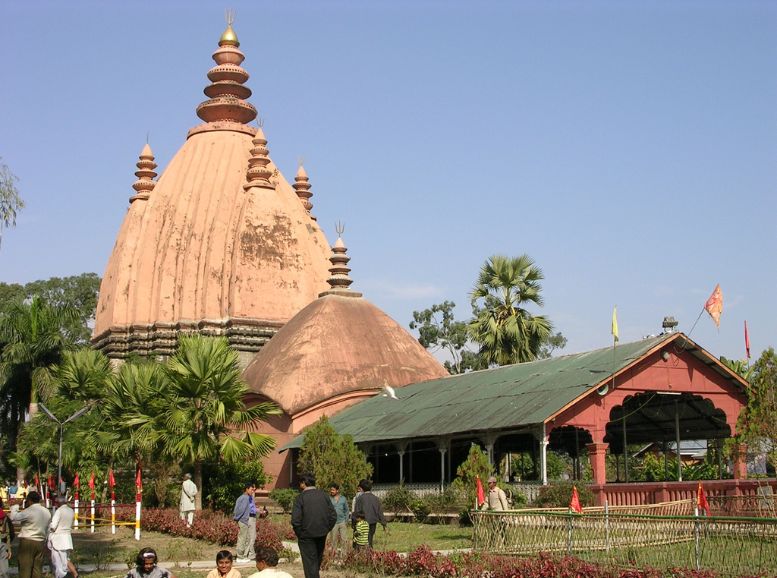

Sivadol, situated in the heart of Sivasagar town in the Indian state of Assam, is a magnificent temple dedicated to Lord Shiva. Erected in the 18th century by the Ahom King Swargadeo Siba Singha, Sivadol is a symbol of Assam’s rich cultural and religious heritage. The temple’s architectural grandeur, with its towering spires and intricate carvings, mesmerizes visitors and devotees alike. Sivadol serves as a significant pilgrimage site for followers of Hinduism, drawing devotees from far and wide to pay homage to Lord Shiva.
Ambari Wildlife Sanctuary:
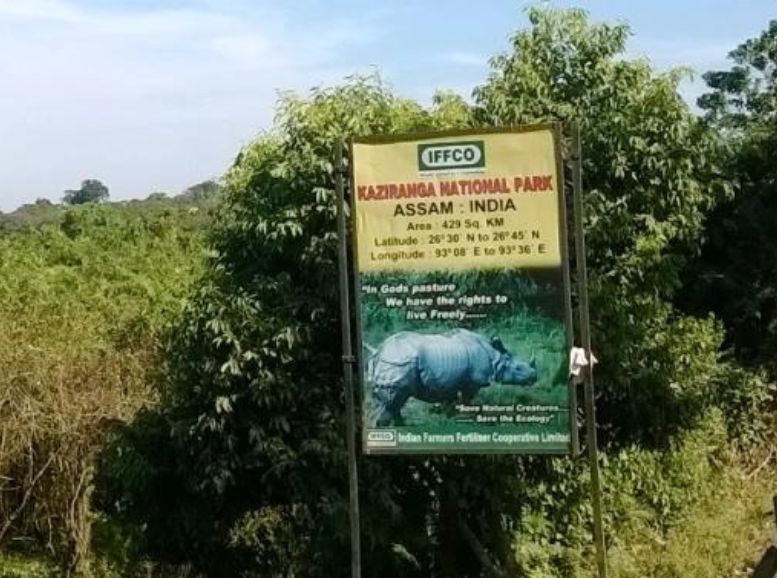

Aambari Wildlife Sanctuary, located in the Bongaigaon district, India, is a haven for biodiversity enthusiasts and nature lovers. Spread across an area of approximately 125 square kilometers, this sanctuary is characterized by its diverse landscape, which includes dense forests, grasslands, and wetlands. Aambari Wildlife Sanctuary is home to a rich variety of flora and fauna, including several endangered and rare species.
Joysagar Tank:
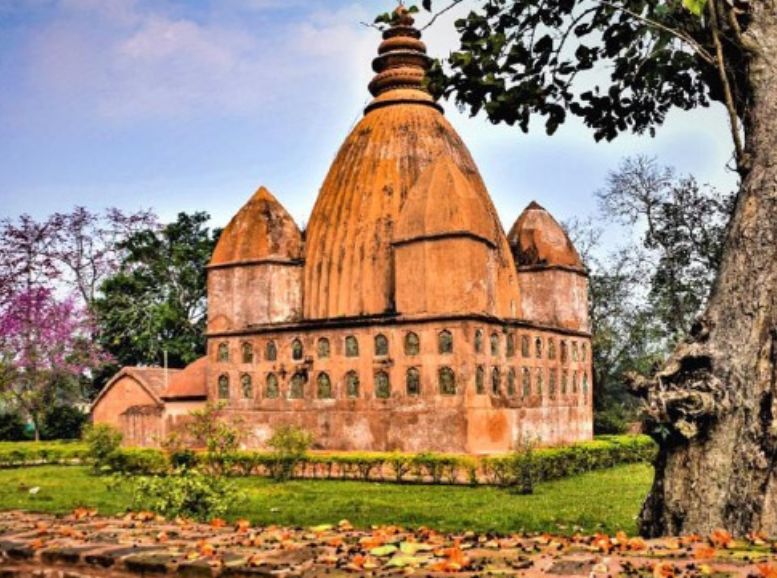

Joysagar Tank, situated in Sivasagar district of Assam, India, is a historic man-made reservoir built by the Ahom kings during the 17th century. Spanning over an expansive area, this tank holds immense historical and cultural significance for the region. Constructed by King Rudra Singha in memory of his mother Joymati, the tank served as a source of irrigation for the surrounding agricultural lands and played a vital role in the socio-economic development of the area.
Beyond the Horizon:
Nature’s Hidden Treasures:
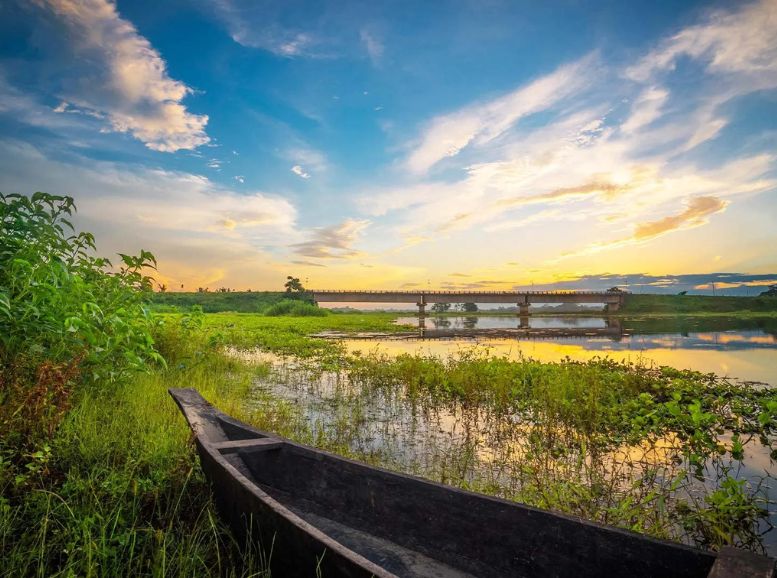

Assam’s natural beauty extends far beyond its famed national parks. Immerse yourself in the tranquility of the tea plantations blanketing the hills of Upper Assam. Embark on an adventurous trek through the diverse landscapes of the Manas Biosphere Reserve, or cruise down the mighty Brahmaputra River, discovering hidden waterfalls and untouched natural beauty.
Go beyond the tourist trail:
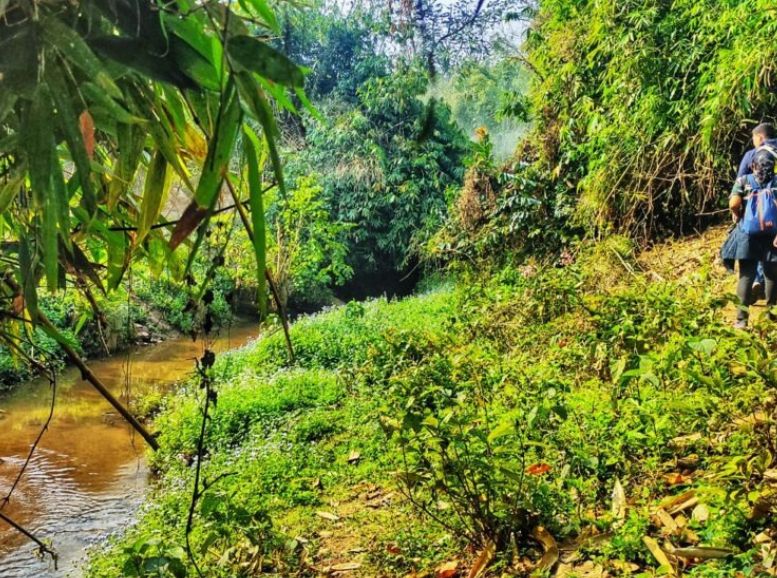

Venture beyond the usual tourist hotspots and discover the hidden gems within Assam itself. Explore the unique cultures of various indigenous communities, witness the vibrant colors of traditional festivals like Bihu, and experience the warmth and hospitality of the Assamese people.
Unveiling the past:
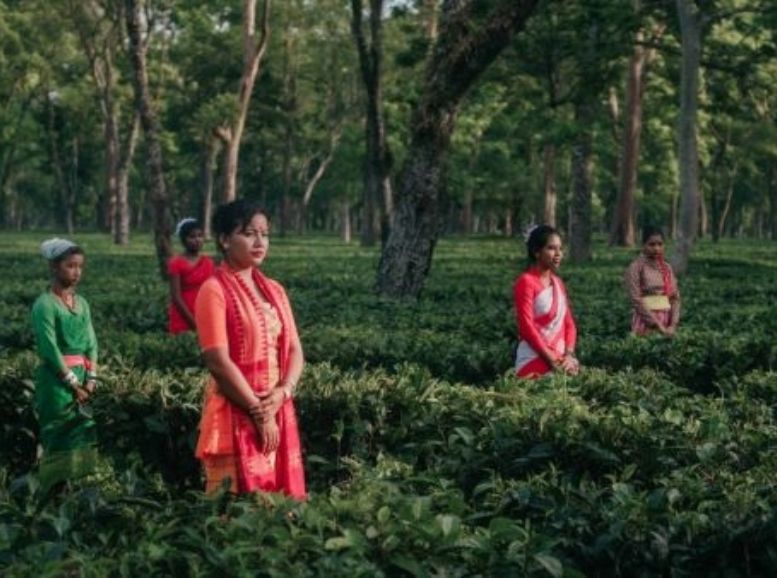

A long and fascinating history, evident in its ancient temples, archaeological sites, and museums. Delve deeper into the remnants of the Ahom kingdom, a powerful civilization that ruled this state for centuries. Explore the remnants of the ancient silk route that once connected Assam to Southeast Asia, or gain insights into the colonial past through preserved architecture and historical records.
Manipur:
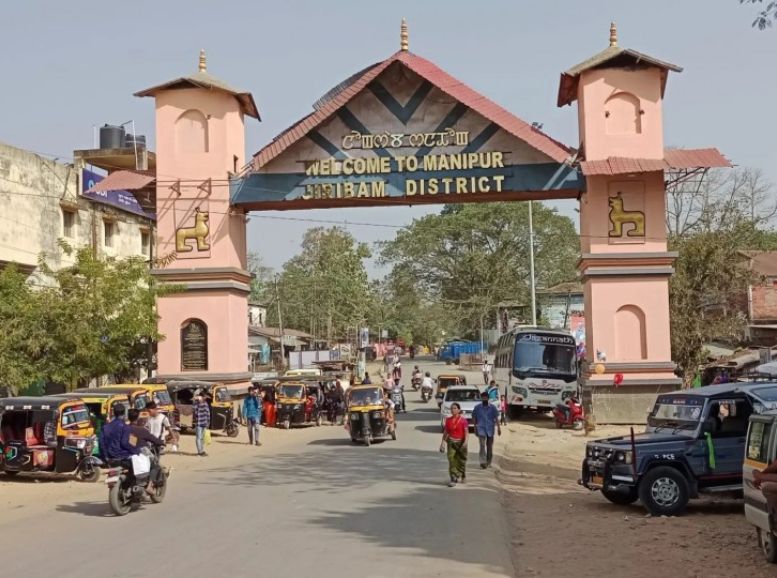

Neighboring Nagaland, Manipur offers a captivating blend of natural beauty and cultural richness. Explore the Loktak Lake, the largest freshwater lake in Northeast India, delve into the history of the Manipur kingdom, and witness the vibrant Manipuri dance forms.
Indigenous Experiences:
- Brahmaputra Odyssey: A leisurely cruise upon the mighty river, each bend revealing breathtaking vistas.
- Silk Alchemy in Sualkuchi: Unravel the secrets of silk in this village, where threads weave tales of intricate artistry.
- Mishing Village Homestay: Immerse yourself in the ebb and flow of the Mishing tribe’s existence through an authentic homestay.
- Visit a Mishing village in Majuli: Witness their traditional way of life, participate in a Bihu dance performance, and learn about their unique mask-making process.
- Explore a Deori village in Upper Assam: Learn about their weaving techniques, witness their vibrant Rongali Bihu celebrations, and enjoy a traditional Deori meal.
- Immerse yourself in a Bodo village: Participate in a traditional archery session, learn about their rich oral history and folklore, and witness the vibrant dance form of Bathou Bihu.
- Learn the art of Assamese silk weaving: Visit a traditional weaving village like Sualkuchi and witness the intricate process of creating beautiful silk garments.
Food Delights:
Assam’s culinary scene is a delight for foodies. Indulge in Assam tea, and don’t miss out on these local delights:
- Assam Laksa: A tangy noodle soup that tantalizes the taste buds.
- Xoru Maas: A spicy fish curry that captures the essence of Assamese cuisine.
- Pitha: Savor these traditional rice cakes, a popular Assamese sweet.
- Xaak: A generic term for leafy greens cooked with various spices and sometimes meat, Xaak offers a variety of healthy and flavorful options.
- Pura Bihu: These crispy flatbreads, traditionally made during the Bihu festival, are a delightful combination of rice flour, lentil flour, and ghee.
- Kanchi Tenga: This tangy lentil soup, flavored with tomatoes, kokum, and spices, is a comforting and light option.
Must-Try Local Experiences:
- Bamboo Rafting in Nameri National Park: Experience adventure amidst nature.
- Majuli’s Satras Visit: Delve into the cultural richness of the island’s Satras (monasteries).
- Witness the Bihu Festival: Immerse yourself in the vibrant celebrations of Bihu, the harvest festival of Assam.
- Learn a Traditional Craft: Participate in a workshop and learn an indigenous craft like silk weaving, pottery making, or bamboo basket weaving.
- Attend a Folk Performance: Witness a captivating performance of traditional dance forms like Bihu dance, Bhortaal dance, or Jhumur dance.
Local Transportation:
- Trains: Choo-choo choo! Fun metal snakes wind through Assam, taking you past mountains, rivers, and villages. Look out the window, eat yummy snacks, make new friends on the train!
- Driving: Smooth roads like shiny ribbons, perfect for your car! Drive slow, see rice fields wave hello, smell flowers in the air. Find hidden waterfalls, stop for chai with friendly villagers.
- Buses and rickshaws: Busy streets, honk honk! Jump on a colorful bus, feel the wind in your hair on a zippy rickshaw. Share a cab with smiling locals, discover secret markets and yummy street food.
- Renting a car: Be your own captain! Choose your own path, explore hidden corners, stop wherever you like. Feel free like a bird, make your own Assam adventure!
- Bonus: Boats on big rivers! Take a slow boat ride, watch birds fly, spot crocodiles sunning themselves. See villages from the water, listen to stories whispered by the waves.
Remember, Assam is for everyone! Big or small, young or old, fast or slow – find your perfect way to explore. So pack your bag, choose your adventure, and let Assam paint you a magical story!
Travel Tips:


- Respect Local Customs: Embrace the local culture and traditions.
- Language: English and Assamese are widely spoken, but learning a few basic Assamese phrases can enhance your experience.
- Permits: Check if any special permits are required for certain areas.
Safety tips:
1. Be in the Know: Stay updated on current events in Assam, including weather forecasts, local news, and any travel advisories from authorities.
2. Respect the Culture: Assam boasts a rich tapestry of traditions. Show respect for local customs, religious practices, and social etiquette to ensure a smooth and culturally immersive experience.
3. Prioritize Health: Pack any essential medications you require and research medical facilities in your destination.
4. Travel Wisely: Choose reliable transportation providers and prioritize safety.
5. Wildlife Encounters: When visiting wildlife reserves or exploring forests, adhere to park regulations.
6. Stay Vigilant: Remain aware of your surroundings, particularly in crowded areas, markets, and popular tourist spots.
Conclusion:
As you say goodbye to this special place, hold onto the warmth of the people, the beauty of the traditions, and the sounds of the waterfalls and forests. Assam, with its mountains, rivers, and colorful life, will always stay in your heart, reminding you to keep exploring new wonders. So pack your memories, leave a promise to return, and who knows, maybe the magic of Assam will call you back for another adventure soon! Xplro is thankful to you for visiting us.
FAQs
- Do I need a visa to visit Assam?
If you are a citizen of India, you do not need a visa to visit. However, international visitors will require a valid visa for India.
- What is the currency used in Assam?
The Indian Rupee (INR) is the official currency used in Assam.
- What languages are spoken in Assam?
Assamese is the official language of Assam, but Hindi and English are also widely spoken.
- What is the dress code in Assam?
Assam has a diverse culture, and dress codes can vary depending on location and occasion. Generally, modest clothing covering shoulders and knees is recommended, especially when visiting religious sites.
- What is the food like in Assam?
Assamese cuisine is known for its use of fresh, local ingredients and unique flavors. Popular dishes include Masor Tenga (fish curry), Aloo Pitika (mashed potatoes), and Komal Saul (banana flower dish). Don’t forget to try the famous Assamese tea!
- Do I need any vaccinations before visiting Assam? –
It is advisable to consult with your doctor or a travel clinic regarding recommended vaccinations before your trip to Assam.
